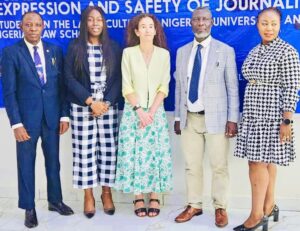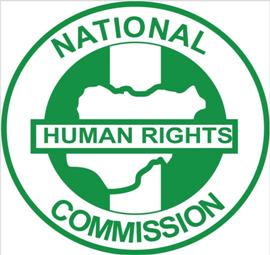ECOWAS Court of Justice has enhanced and enriched regional and international jurisprudence since its creation, Justice Edward Asante, the immediate past President of the community court
By Mark Longyen
ECOWAS Court of Justice has enhanced and enriched regional and international jurisprudence since its creation, Justice Edward Asante, the immediate past President of the community court has said.
Asante stated this in a speech which he delivered at a “Train the Trainers’ Workshop,” in Lagos on Wednesday, organised by UNESCO.
In a statement from the court on Thursday, the training centred on “Freedom of Expression, Access to Information, Safety of Journalists, AI, and the Rule of Law for Judicial Tutors.”
The former ECOWAS court president spoke on the topic: “ECOWAS Court of Justice Jurisprudence and Standards on Freedom of Expression, Access to Information, and Safety of Journalists.”
Asante underscored the legal foundations guaranteeing freedom of expression within ECOWAS member states, which he said, were drawn from international, regional, and national legal instruments.
He emphasised that ECOWAS member states were under legal obligation to uphold human rights principles as enshrined in the said instruments.
Asante listed the instruments to include the Universal Declaration of Human Rights (UDHR), the International Covenant on Civil and Political Rights (ICCPR), the African Charter on Human and Peoples’ Rights (ACHPR).
Others are the ECOWAS legal frameworks, such as the 1991 Declaration of ECOWAS Political Principles and the 1993 Revised Treaty, he added.
He recalled that the court had delivered some landmark cases, which significantly contributed to the promotion and protection of freedom of expression, access to information, and journalists’ safety.
He noted that one of the court’s landmark judgments was the Socio-Economic Rights and Accountability Project (SERAP) versus the Federal Republic of Nigeria (ECW/CCJ/JUD/40/22), otherwise called the Twitter Case.
Asante recalled that the court ruled that access to Twitter was a derivative right necessary for the exercise of freedom of expression, and ordered Nigeria to lift its suspension of the social media platform.
Another landmark judgment, he said, was in the case of Amnesty International and others versus the Republic of Togo (ECW/CCJ/JUD/09/20).
Asante said that in that case, the court held that internet shutdowns constituted a violation of the right to freedom of expression, thereby, enriching global jurisprudence.
That particular decision, he said, earned the court international recognition, culminating in its winning the Columbia University Global Freedom of Expression Award.
One of court’s landmark decisions, he further said, was the Federation of African Journalists and others versus The Gambia (ECW/CCJ/JUD/04/18).
Asante said the court decided that The Gambia’s criminal laws imposed disproportionate restrictions on press freedom, was inconsistent with international human rights standards, and ordered the repeal of its provisions.
The judge also said that the case of Isaac Olamikan and another person versus the Federal Republic of Nigeria (ECW/CCJ/JUD/43/23) also enriched regional and international jurisprudence.
He said the court ruled in the instant case that restrictive accreditation requirements for journalists in Nigeria violated the freedom of expression under the ACHPR.
The judge also challenged ECOWAS member states to take the responsibility of ensuring that a conducive legal environment conducive to media freedom thrived in their countries.
He emphasised that freedom of expression was a fundamental right, subject to permissible limitations under international law, provided they met the criteria of legality, legitimacy, necessity, and proportionality.
The event, which brought together key judicial actors, aimed at strengthening the rule of law and enhancing the protection of fundamental rights in the digital age(NAN)




